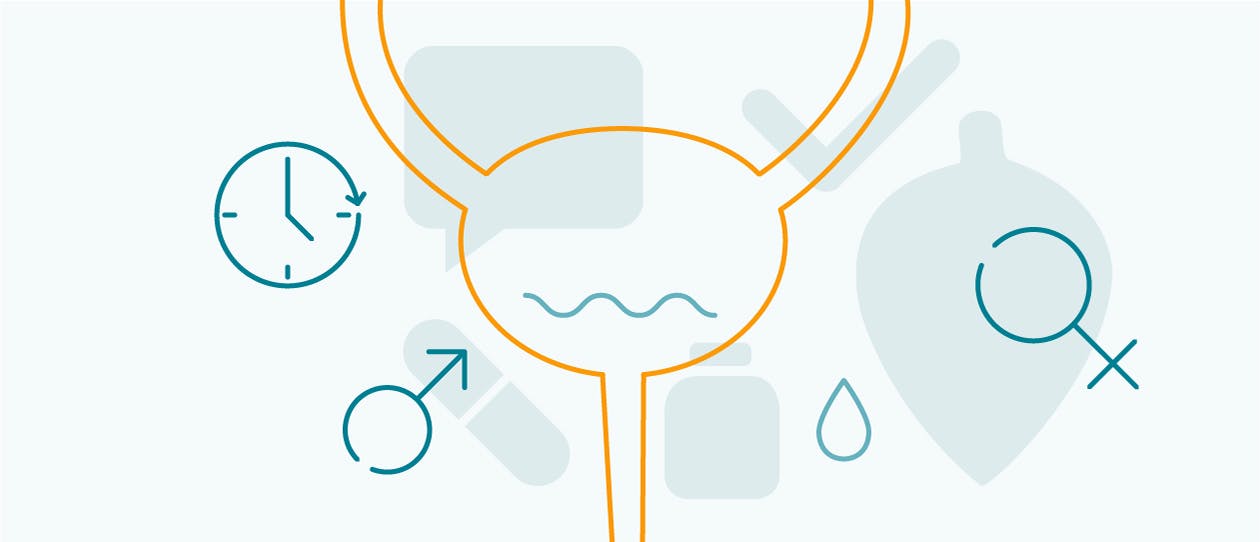
- Health hub/
- Women's health/
- Cystitis


- A burning sensation when urinating
- Frequent need to urinate, with little urine passed
- Urine may have a strong, foul odour and/or a cloudy or bloody appearance
- A feeling of pressure in the pelvic region and/or pain in the lower abdomen
- Lower abdominal pain may occur
- Kidney infection can occur as a complication of cystitis; symptoms may include fever, chills, and low back pain. If you suspect you have a kidney infection, seek immediate medical advice.
- Urinary tract infections in men or children may be a symptom of an underlying disorder and should be investigated and managed by a medical practitioner.
Most cystitis is caused by the migration of E. coli bacteria (which inhabit the digestive tract) from the anus into the urinary system via the urethra (the tube that carries urine from the bladder to the outside). Once in the bladder, the bacteria multiply.
Women are more prone to UTIs than men due to the proximity of the female urethra to the anus, and the relatively short length of the female urethra. Hormonal factors also contribute, making the female bladder a more hospitable environment for the bacteria during pregnancy and some stages of the menstrual cycle and after menopause.
Some women contract the infection following sexual intercourse, which can cause bacteria to be pushed into the bladder via the urethra.
These factors combine to mean that many women experience urinary discomfort at least once a year, and some suffer from recurrent episodes of cystitis.
Interstitial cystitis is a form of cystitis in which the symptoms of infection are present, but there is no detectable infection. This is a more difficult form of the condition to manage, and its cause is unknown, however family history, infections and allergies have all been suggested as possible causes or contributing factors.
- Drink plenty of clean water to encourage frequent urination and the flushing of the urinary tract.
- Always wipe from front to back after going to the toilet, and be sure to urinate as soon as possible after you feel the urge, making sure you empty your bladder completely each time.
- Wash your genitals immediately before sex, and ask your partner to do the same. Additionally, urinate immediately after sexual intercourse to flush out any bacteria in the urethra.
- Wear cotton (not nylon) underwear and avoid tight clothing, instead choosing loose, non-binding clothing made from natural fabrics.
- Natural therapists recommend drinking marshmallow and corn silk teas to relieve the burning pain of cystitis.
- Don’t use perfumed bubble baths, soaps, talcum powder or any form of deodorant around the genital region.
- Thrush may promote cystitis; so if you experience symptoms of thrush, take immediate steps to resolve the issue.
- UTIs sometimes cause serious complications, so it is vital that you consult your healthcare professional if your symptoms continue for more than 48 hours. Symptoms of vomiting, fever, chills, or abdominal or back pain should all be medically investigated.
- Seek immediate medical attention if blood is present in the urine, or if a child is exhibiting symptoms of UTI.




